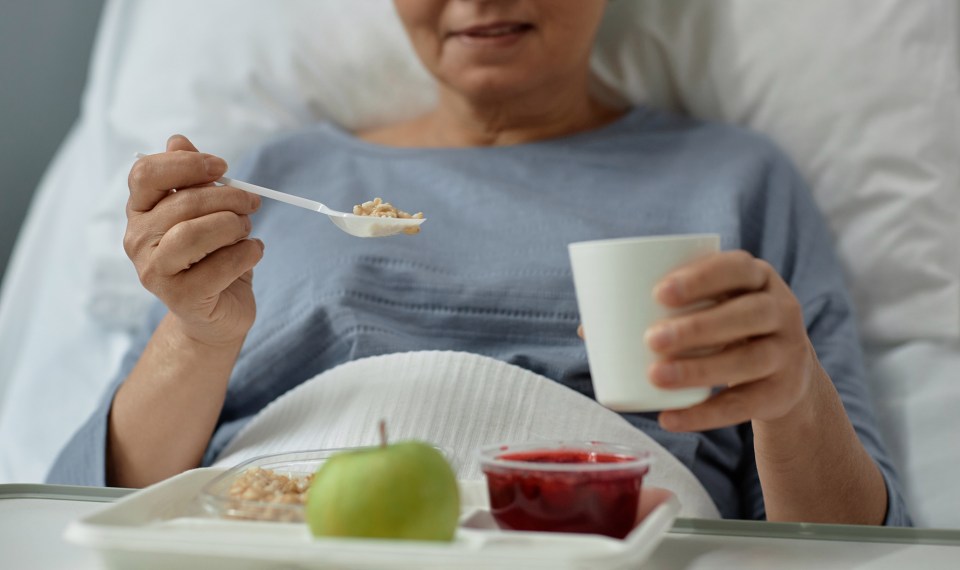Although there is still much to be discovered, nutritional intervention is emerging as a key strategy to improve outcomes for patients dealing with chronic disease. This encompasses the vast majority of older Americans.
According to the National Council on Aging (NCOA), 80% of older adults in the U.S. had at least one chronic disease and 68% had two in 2017. This is a tremendous burden on the individual, the healthcare system and even the government.
In fact, it is estimated that 75% of national healthcare costs can be attributed to the treatment and management of chronic diseases. The top ten most common chronic conditions include hypertension, high cholesterol, arthritis, ischemic heart disease, diabetes, chronic kidney disease, heart failure, depression, Alzheimer’s disease or dementia, and chronic obstructive pulmonary disease (COPD).
Recent discoveries between nutrition and chronic diseases
The following studies give a brief glimpse of the growing collection of evidence that indicates nutritional support, education and intervention can improve a patient’s overall health status, even when living with a chronic disease.
- According to a 2015 retrospective research study published in the Journal of Cardiac Failure on heart failure and nutrition, scientists concluded that there was a clear benefit when patients with chronic heart failure received educational and prescriptive nutrition interventions. Improved outcomes included decreased hospital readmission rates, decreased patient deterioration scores, and decreased inflammatory markers.
- The correlation between hypertension and dietary changes is significant. According to a study in the Cardiology Clinics journal, the most effective nutritional interventions include weight loss, reduced sodium intake, increased potassium intake, moderation of alcohol intake, and Dietary Approaches to Stop Hypertension (DASH)-style and vegetarian dietary patterns. According to the Mayo Clinic, diet alone can lower one’s blood pressure by 11 mm Hg.
- Although a healthy diet is only part of the prescription, a 2019 study showed that consuming a diet rich in vegetables, fruits, fish and lean meat is associated with a reduced risk of depression. In fact, when a group of “moderately-depressed” young adults followed a Mediterranean-style of eating for three weeks, their depression score fell from the “moderate” down to the “normal” range in comparison to the control group. On two different depression scales, the study group with the nutrition intervention reported less depressive symptoms and these results were maintained three months after the study concluded.
- Patients with dementia are at heightened risk for malnutrition. A 2014 study in the Clinical Interventions in Aging showed a powerful correlation between malnourished cognitively impaired patients and increased morbidity and mortality.
- Those who suffer from COPD often have weight loss, sarcopenia (protein wasting) and pulmonary cachexia. One study from 2013 showed patients with COPD who had a body mass index of less than 21 required more days on the ventilator and were more likely to be rehospitalized, placed back on the ventilator or die. Many studies are showing that these problems can be mitigated through nutritional intervention and supplementation.
- According to the virtual 2020 Annual Endocrinology Conference, a three-year study of remote counselling in patients with Type 2 diabetes showed meaningful improvements in hemoglobin A1c, body weight and several cholesterol markers.
Incorporating nutrition education
For clinicians, incorporating nutrition education into their already busy practice might seem like a daunting task – but it doesn’t have to be.
Get informed
Most clinicians received very little educational training in nutrition. In addition, there is a constant stream of new information and evidence-based nutrition recommendations. Educate yourself by putting nutrition topics on your educational radar. Make a goal to read a nutrition article or listen to a nutrition podcast each month or even subscribe to a reputable nutrition newsletter.
The Academy of Nutrition and Dietetics or the American Heart Association are two helpful websites with dependable information and resources. When attending medical conferences, select a course which includes diet or nutrition.
Screen for malnutrition
There are several validated and reliable nutrition screening tools that are free to use and easy to include in an initial assessment. It is important to ensure that the selected screening tool is ideal for your particular patient population.
With a few simple questions, these tools can help identify patients who are more likely malnourished and need further assessment by a registered dietitian. Encompass Health inpatient rehabilitation hospitals and home health and hospice branches use nutrition screening tools as part of their general assessments.
Phone a friend
When a patient has a nutritional issue, refer them to the appropriate provider. Clinical collaboration is critical. Contact their physician and express your findings and concerns. Encourage a consultation with a registered dietitian, if necessary.
Watch out for food insecurity
Food insecurity is defined as not having a reliable or adequate access to affordable or nutritious food. In 2017, almost 8% of homes in the U.S. with an adult 65 years or older experienced food insecurity. Just last year, a study published in The Journal of the American Geriatric Society found that if a senior citizen participated in both Medicaid and Medicare, the rate increased to over 25%.
Patients cannot heal wounds, maintain lean muscle mass, recover from injury and fight infection if they cannot get enough or the right foods to eat.
Start the conversation
Helping patients improve their intake does not have to be a formalized process. It can be as simple as starting a conversation while the patient is on the recumbent bike during a therapy session or while taking their vitals at the bedside.
Here are a few easy prompts:
- “Wow! You seem to have a lot of energy today. What did you have for breakfast?”
- “What did your doctor recommend for your diet? How is that going?”
- “Since your surgery, how are you managing with getting your groceries and preparing your meals?”
Stick to the facts
Resist the urge to spread anecdotal accounts or sensational misinformation. Just like politics and religion, it seems that everyone has differing opinions on diet and nutrition. Don’t make the conversation a battlefield. Simply use evidence-based nutrition principles when you share information.
Model good behavior
Perhaps the most powerful influence a clinician exerts is their own example. Patients will remember both what a clinician says and especially what they do.
A physical therapist might state, “It has been 15 minutes on the treadmill, let’s hydrate with some water before our next exercise. I should probably drink some water, too.”
A nurse may comment, “Your blood sugar is low right now which can be dangerous. What are some good options for you to eat or drink when your blood sugar is low? Why don’t you eat that now, so we can recheck your blood sugar in 15 minutes and make sure you are out of danger?”
Don’t be afraid
It is never too late to take positive action. Healthcare clinicians employ numerous and creative modalities to help their patients achieve optimal outcomes. Why not add the modality of nutrition?
Through thoughtful and educated interviewing and practices, clinicians can encourage and promote healthy food choices which will help all patients, even those suffering with chronic diseases.
The content of this site is for informational purposes only and should not be taken as professional medical advice. Always seek the advice of your physician or other qualified healthcare provider with any questions you may have regarding any medical conditions or treatments.



